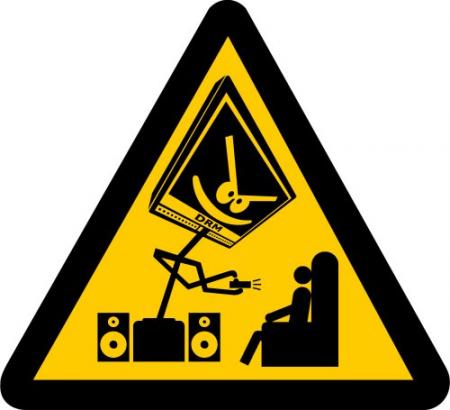There are may different DRM systems on the market. They are incompatible with each other, making it even more difficult for citizens to use legally purchased content.
If we buy movies from Apple, we have to use Apple software to watch our collection and we are no longer free to choose competing products and services. This weakens competition and restricts innovation.

People with disabilities are often barred from media use because DRM prevents them from converting content to formats they can use despite their disabilities. For example, book publishers protested against the capacity of Amazon's e-book reader, to electronically convert text into speech. Amazon bent to the publishers' will and deactivated the text-to-speech feature for many books which means blind people will simply not be able to read those books.
Digital Restrictions Management also changes how laws and regulations are applied: Making use of exceptions that copyright legislations allows for, is made impossible because DRM systems are inflexible. It is for example legal to quote copyrighted material; DRM systems restrict any kind of copy, also the ones that are meant to be used as quotations. This means we have to type each word manually and we lose the advantages a digital copy would normally have.